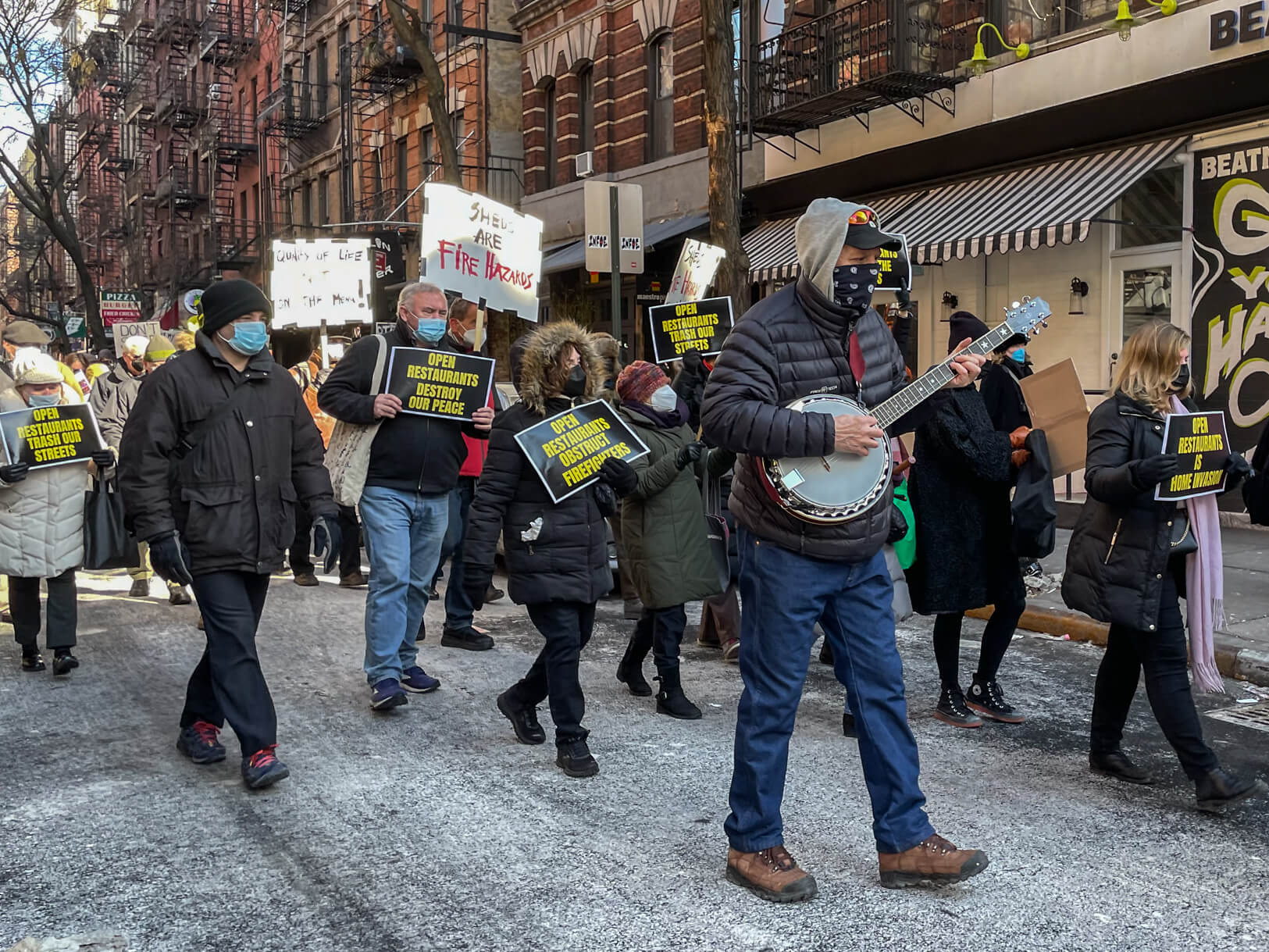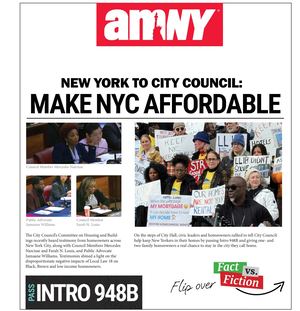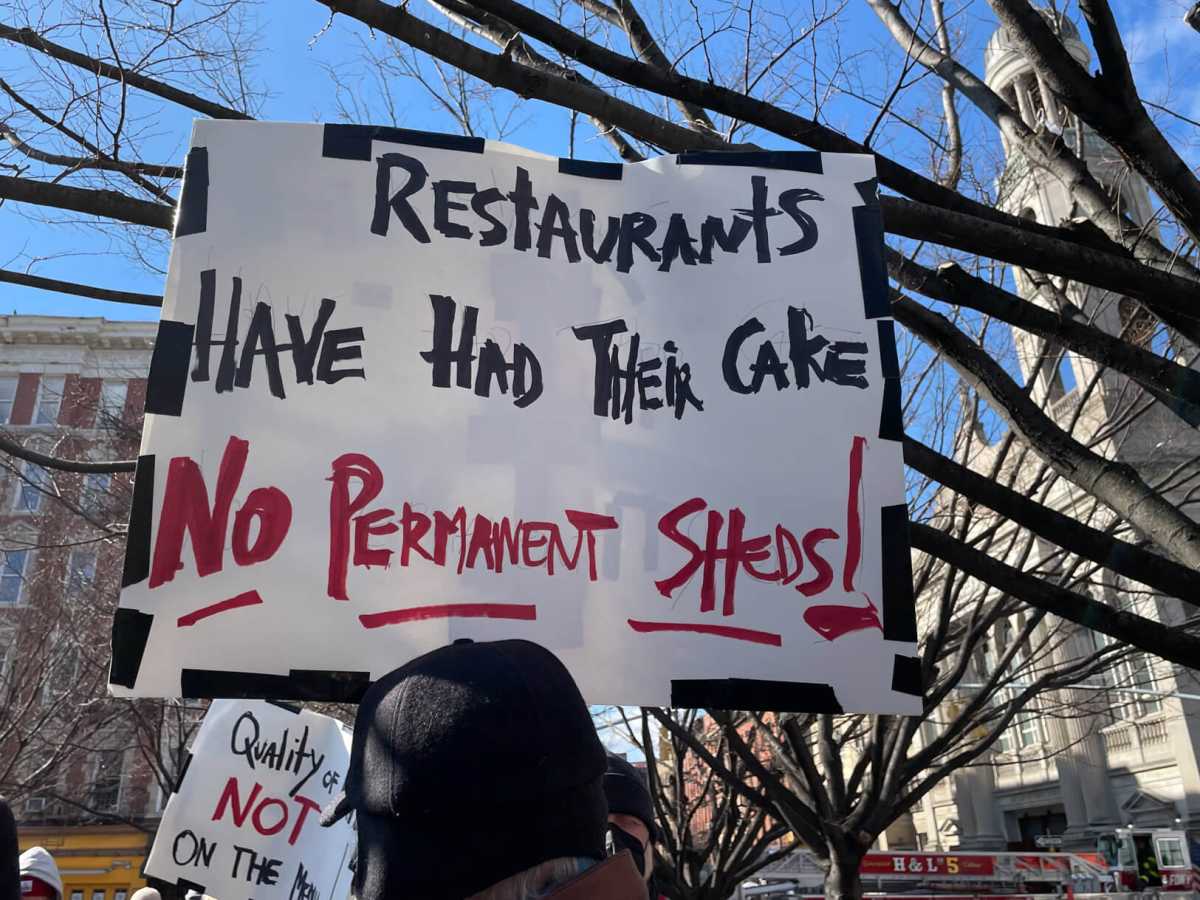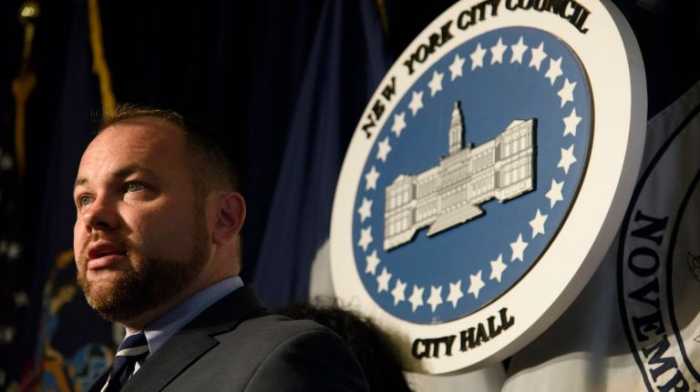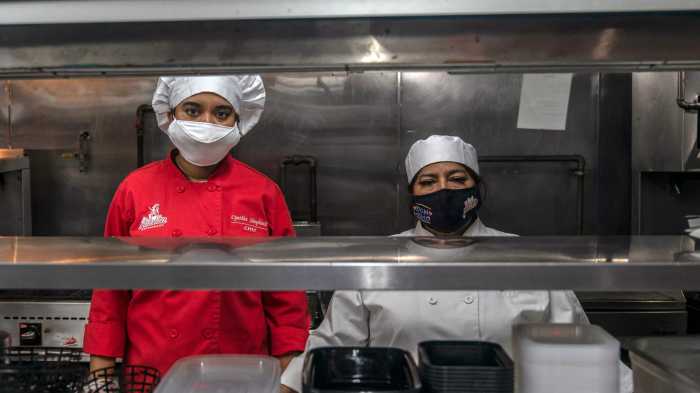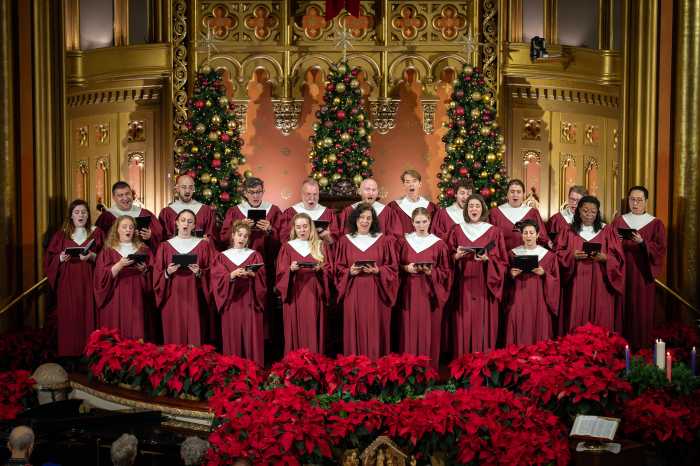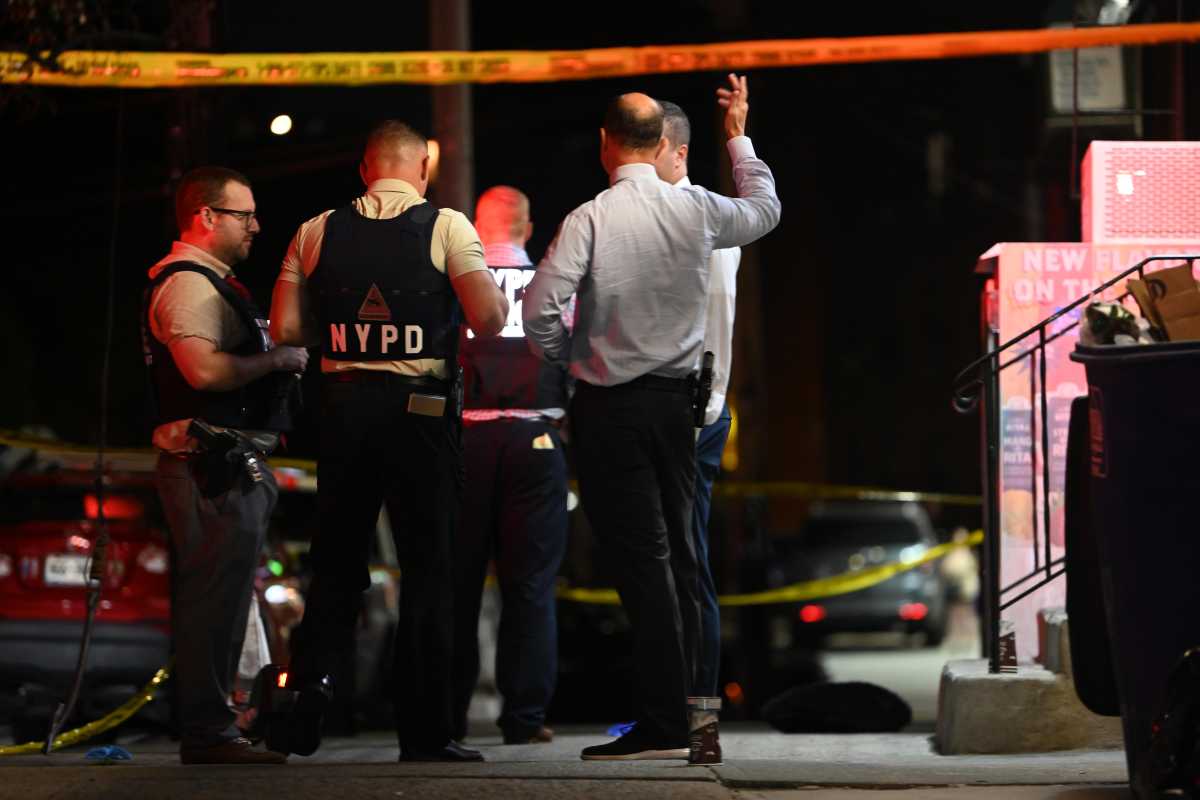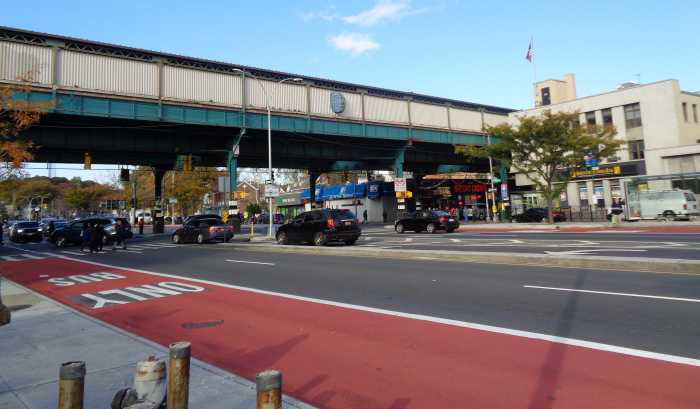No one argues that restaurants and restaurant workers suffered considerably with lost wages and revenues during the COVID shutdown when indoor dining was not allowed.
The temporary emergency program to save restaurants and their workers started during summer 2020 with outdoor seating on sidewalks and roadway sheds, allowing for a safer environment for New Yorkers to dine out during the pandemic. The program also brought life to the months-deserted streets.
However, restaurant sheds are appearing now not so much a blessing but rather a curse. Especially in the Village, which doesn’t just have an occasional outdoor shed.
Some entire blocks are lined side-to-side with various structures from open-sided minimalist sheds to completely enclosed and heated constructions. What were to be well-ventilated spaces have become closed, additional rooms of the restaurants.
Aside from defeating the purpose of good ventilation, Stuart Waldman of CUEUP (Coalition United for Equitable Urban Policy), host of a Village protest rally this past Saturday, lists why a permanent Open Restaurants program is a public nuisance not a public benefit: rat infestation, impeding pedestrian traffic, snarls street traffic, intolerable noise, mounds of trash.
For the most part complaints through the City’s 311 complaint-portal go unattended or there are little enforcements for issued warnings.
CUEUP believes that the sheds represent privatizing public space.
Under the temporary program, various aspects of regulations fell to different agencies from FDNY, to noise-NYPD, to DOT. The proposed permanent program is under DOT.
On Saturday, Feb. 7, 100 concerned Villagers gathered at Bleecker and 6th to voice their distress how these sheds have severely impacted the quality of life in the Village.
One placard among the many stood out—ONE SIZE DOES NOT FIT ALL—meaning regulations for a block in Brooklyn or Queens, where there is one shed here or there, is not the same as the streets of the Village where the entire block is lined with sheds.
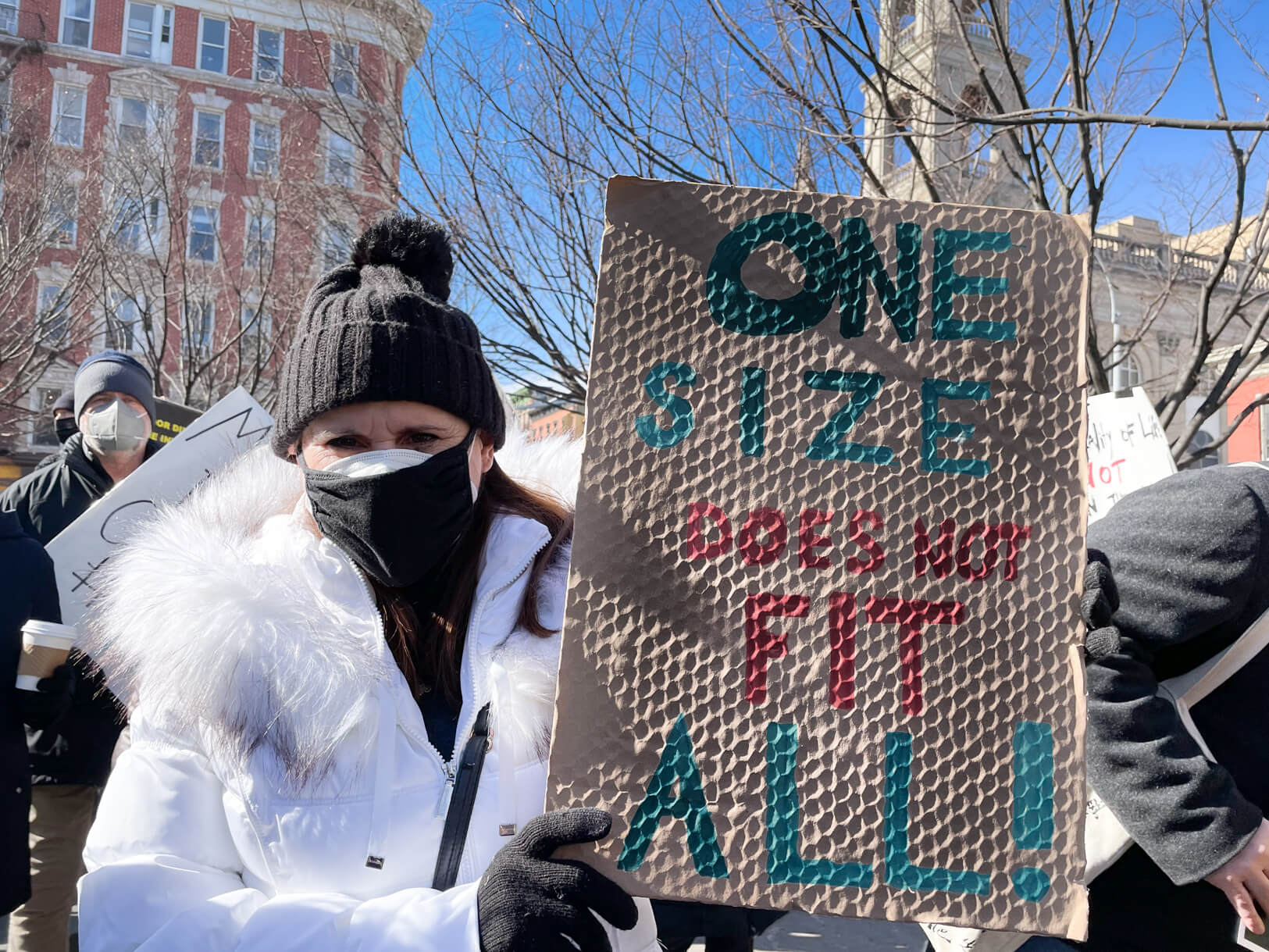
Brian Gately lives in Crown Heights says, “I like them!” It’s the classic—nice place to visit but I wouldn’t want to live there, he’s not living among them.
Braving the bitter February afternoon, the lively group left Father Demo Square walking MacDougal, Bleecker to Thompson Street, which is one of the streets almost completely lined with sheds. They chanted, “No more sheds!” as they marched to the Washington Square Park rally.
“I am disheartened by what it looks like now,” said State Representative Debra Glick to those assembled at the Arch. “Yes!” was shouted from the crowd. Glick continued, “All of us supported the emergency measures to save our restaurants! And we’re not past COVID so we still need to support those restaurants. But it cannot be a permanent fixture.”
She went on to explain how other small businesses are at a competitive disadvantage for renting space. “If a landlord can rent the space indoors that they own, and charge for it, and charge for the space outdoors that we (the people) own, why would they choose to rent to a business that only needs indoor space. Someone yells, “Give away!” from the crowd.
“It’s a powerful lobby for the restaurants—out there supporting their interests and there are powerful real estate interests in this city.
The people have some rights too. People who have lived here for a long time have an expectation that they can enjoy their homes.”
Glick also listed other problems resulting from the proliferation of sheds: some people have not had their streets cleaned in two years; there is trash build-up and rats where there never were rats; restaurant patrons are blocking the entrance to apartment buildings, and noise late until the evening.
The sidewalk eight-foot clearance for pedestrians rule is completely ignored and there are issues of parking spaces for Access-a-Ride and for delivery trucks to pull over.
Glick emphasized how the streets must by shared equitably, “Fairness and equity.” That’s what’s at stake.
“There was a time and place for open restaurants. That time and place has gone,” said Councilmember Chris Marte who also spoke citing the real estate industry pitting groups against each other.
Hindering fire engine and hydrant access is another grave concern, “Last year, we could have had a catastrophe on Thompson St. where a fire truck couldn’t open its doors,” he said.
Furthermore, the public has witnessed in the past year-and-half sheds collapsing, abandoned, sheds filled with garbage, sheds used as delivery bicycle parking spaces, outdoor seating too close to hydrants, and spaces used as storage for tables and the planters.
